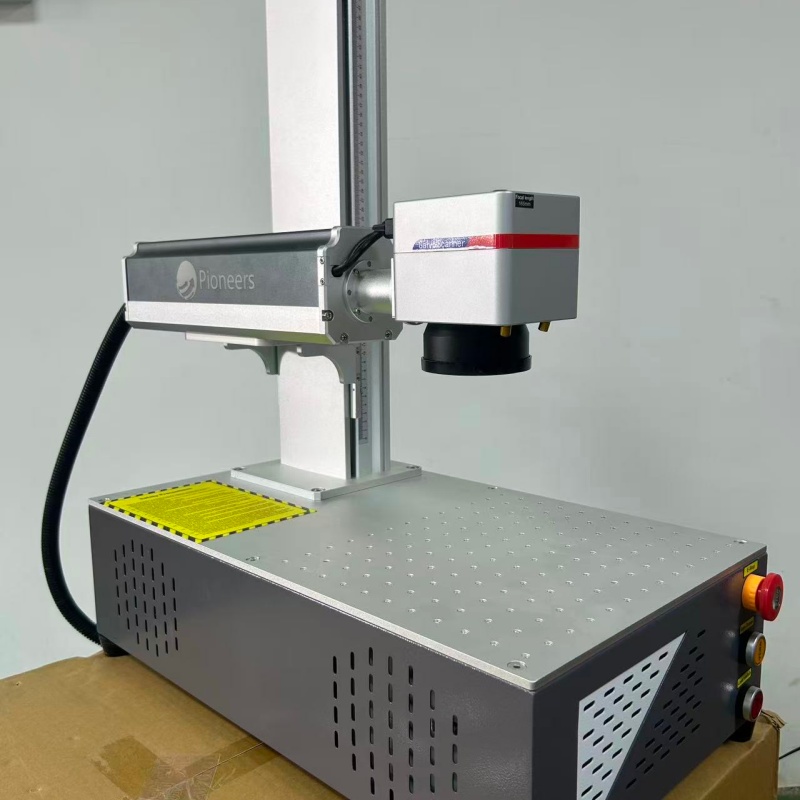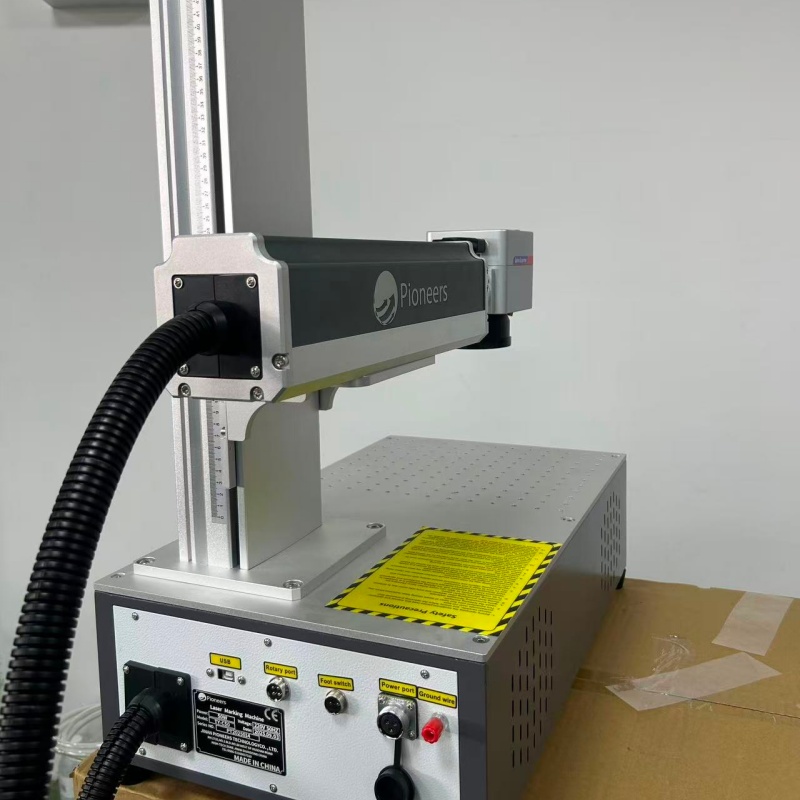In modern manufacturing, product labeling is a critical component of traceability, quality control, and brand anti-counterfeiting. Laser marking machines, with their high precision, stability, and flexibility, have become core marking equipment across various sectors, radically overcoming the limitations of traditional labeling processes and injecting new impetus into manufacturing upgrades.
In the electronics manufacturing industry, laser marking machines are key to achieving “miniaturized labeling.” Electronic components such as chips, resistors, and capacitors are tiny, and traditional silk-screen printing processes are prone to blurring and fading, and are unable to operate on curved or irregular surfaces. Laser marking machines utilize fiber laser technology to clearly mark information such as model numbers, specifications, and production dates on a tiny area as small as 0.1 mm. These markings are highly wear-resistant and can withstand harsh environments such as high temperatures and humidity, while also protecting the internal components from damage, ensuring the stability and traceability of electronic devices. Furthermore, in the processing of end-product casings such as mobile phones and computers, laser marking machines enable the precise engraving of personalized patterns and brand logos, achieving both aesthetics and durability, meeting the personalized needs of consumer electronics. In the automotive manufacturing industry, laser marking machines play a crucial role in “full lifecycle traceability.” From auto parts to complete vehicle assembly, laser marking technology is used throughout the entire process. Unique laser-marked codes on key components like engine blocks and transmissions enable traceability throughout the entire production, assembly, and repair process, enabling rapid identification of any quality issues. Laser-marked VIN codes (Vehicle Identification Numbers) on vehicle frames are tamper-proof and anti-counterfeit, effectively curbing issues like mileage tampering and identity theft on used cars. Compared to traditional mechanical engraving, laser marking is 3-5 times faster and requires no contact with the workpiece, eliminating the impact of mechanical forces on component precision. This makes it ideally suited to the efficient, high-precision production pace of the automotive industry. Furthermore, laser marking machines can operate on a variety of automotive materials, including metal, plastic, and glass, meeting diverse component marking requirements and further enhancing standardization in automotive manufacturing.

In the medical device manufacturing industry, laser marking machines are a key tool for ensuring safety and compliance. Medical devices require extremely high labeling clarity, stability, and safety. For example, surgical instruments and implantable medical devices must be marked with information such as the production batch number, sterilization date, and expiration date. These markings must not contain harmful substances and must not fall off during sterilization or use. Laser marking machines use a physical marking method that requires no consumables or chemical contamination, creating permanent markings on common medical device materials such as stainless steel and titanium alloys. This not only complies with national medical device regulatory standards but also helps companies achieve product traceability and reduce the risk of medical accidents. For example, laser-marked traceability codes on disposable medical devices such as syringes and infusion sets can quickly link to production information, facilitating verification by regulatory authorities and ensuring patient safety.
As the manufacturing industry evolves towards intelligent and sophisticated processes, the application of laser marking machines continues to expand. Their seamless integration with automated production lines enables unmanned labeling operations, improving production efficiency. Combined with AI visual inspection technology, they can monitor labeling quality in real time, reducing manual quality inspection costs. In the future, as laser technology continues to evolve, laser marking machines will achieve higher precision and faster marking speeds. They will also move towards a greener future, further reducing energy consumption and providing stronger support for the efficient, safe, and sustainable development of the manufacturing industry.
With the intelligent upgrade of the manufacturing industry, the application of laser marking machines continues to expand. By connecting with the MES system (Manufacturing Execution System), laser marking machines can achieve real-time upload and traceability of marking information, helping companies build digital production management systems. Combined with AI visual inspection technology, they can automatically identify the position and clarity of markings, eliminate substandard products in real time, and reduce manual quality inspection errors. In the future, with the application of new technologies such as ultraviolet lasers and green lasers, laser marking machines will further break through material limitations and achieve high-precision marking on more materials such as plastics, glass, and ceramics, providing stronger support for the high-quality development of the manufacturing industry.



